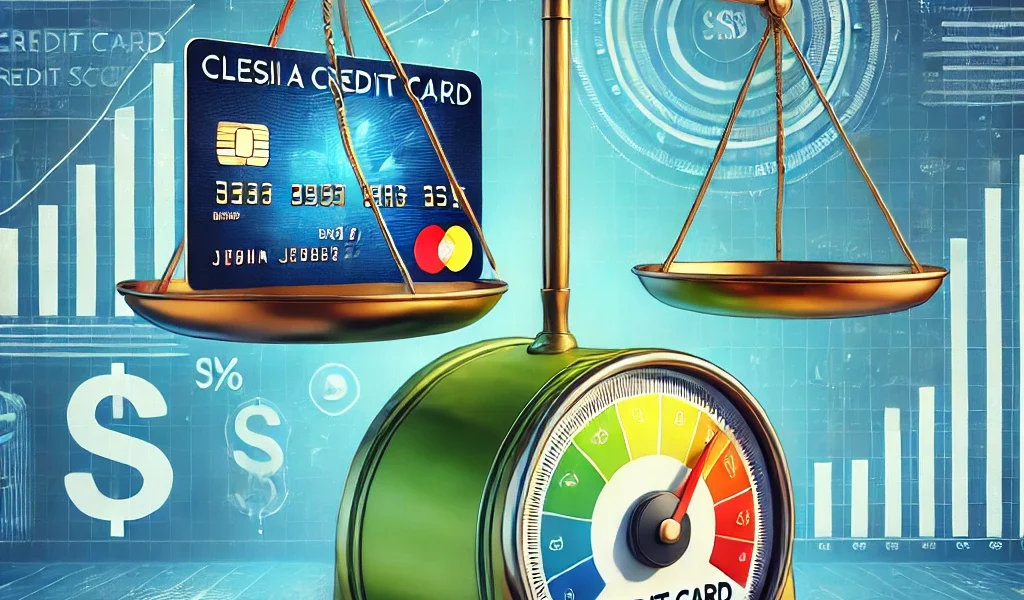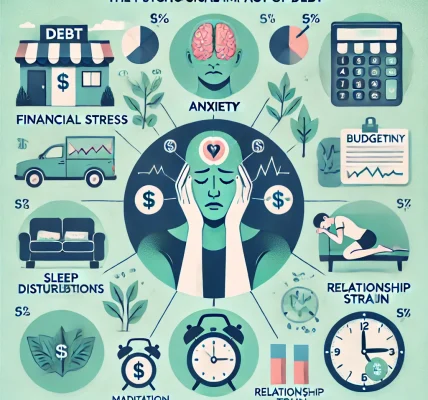Credit cards are a powerful financial tool that can help you build credit, manage expenses, and earn rewards. However, there may come a time when you decide to close a credit card whether to simplify your finances, avoid fees, or reduce the temptation to overspend. But is closing a credit card the right move? More importantly, does it hurt your credit score?
Many people believe that closing a credit card will automatically damage their credit score, but the truth is more nuanced. In this DIY guide, we will explore how closing a credit card impacts your credit score, when it makes sense to close a card, and how to minimize potential negative effects.
1. How Closing a Credit Card Affects Your Credit Score
Your credit score is influenced by several key factors, and closing a credit card can impact each of them differently. Let’s break down the major components of a credit score and how closing a card may affect them:
a) Credit Utilization Ratio (30% of Your Credit Score)
Your credit utilization ratio is the amount of credit you are using compared to your total available credit. This factor plays a significant role in your credit score.
- Example: If you have two credit cards with a combined credit limit of $10,000 and you have a balance of $2,000, your credit utilization is 20% ($2,000/$10,000).
- If you close a credit card with a $5,000 limit, your total available credit drops to $5,000, making your utilization ratio jump to 40% ($2,000/$5,000), which could negatively impact your credit score.
b) Length of Credit History (15% of Your Credit Score)
Credit history length considers the age of your oldest account, the average age of all accounts, and how long specific accounts have been open.
- Closing your oldest credit card could lower the average age of your accounts, which may negatively impact your credit score.
- However, closed accounts remain on your credit report for up to 10 years, so the impact is gradual.
c) Credit Mix (10% of Your Credit Score)
Lenders like to see a mix of different types of credit, such as credit cards, mortgages, and auto loans. If you only have one credit card and you close it, your credit mix may suffer.
d) New Credit Inquiries (10% of Your Credit Score)
While closing a credit card does not directly lead to a hard inquiry, if you later apply for a new card to replace the old one, the inquiry may slightly impact your score.
e) Payment History (35% of Your Credit Score)
Your payment history is the most important factor in your credit score. Fortunately, closing a credit card does not erase past positive payment history, which continues to benefit your score.
2. When Should You Close a Credit Card?
Closing a credit card is not always a bad idea. In certain situations, it might be the right move:
a) High Annual Fees or Unused Cards
- If you are paying a high annual fee for a card you no longer use, closing it may make sense.
- Before closing, check if you can downgrade to a no-fee version of the card to keep your credit line open.
b) High-Interest Debt on a Card You No Longer Use
- If a card carries a high-interest rate and you don’t need it, closing it could prevent you from accumulating unnecessary debt.
c) Divorce or Separation
- If you have a joint credit card with a spouse and are going through a separation, closing the card can protect you from liability for future charges.
d) Fraud or Security Risks
- If your credit card has been compromised multiple times, closing it may be necessary to protect your finances.
3. When Should You Keep a Credit Card Open?
Keeping a credit card open can be beneficial in many cases. Here are a few reasons to hold onto your card:
a) It’s Your Oldest Account
- Closing your oldest credit card could lower the average age of your accounts, potentially harming your credit score.
b) It Helps Maintain a Low Credit Utilization Ratio
- Keeping a credit card open increases your total available credit, helping to keep your utilization ratio low.
c) You Use It for Rewards or Perks
- If the card offers valuable rewards, cashback, or benefits, it may be worth keeping even if you only use it occasionally.
4. How to Minimize Credit Score Damage When Closing a Credit Card
If you’ve decided to close a credit card, take these steps to reduce any negative impact on your credit score:
a) Pay Off the Balance First
- Make sure the card has a zero balance before closing it to avoid any residual interest or fees.
b) Transfer Your Credit Limit (If Possible)
- Some credit card issuers allow you to transfer the credit limit to another card with the same issuer. This helps preserve your total available credit.
c) Open a New Card Before Closing an Old One
- If you must close a card but want to maintain your credit utilization ratio, consider opening a new card first (only if you can manage it responsibly).
d) Keep Other Cards Open and Active
- Maintain at least one or two other credit cards to keep your credit mix and utilization ratio healthy.
e) Request a Credit Report Review
- Check your credit report after closing the card to ensure the account is reported correctly as “Closed by Consumer” rather than “Closed by Lender.”
5. Common Myths About Closing Credit Cards
Myth #1: Closing a Credit Card Always Lowers Your Credit Score
Truth: Closing a card can impact your score, but the extent depends on your overall credit profile.
Myth #2: You Should Never Close a Credit Card
Truth: Sometimes, closing a card is a smart financial move, especially if it has high fees or security risks.
Myth #3: Closing a Credit Card Erases Your Credit History
Truth: Closed accounts remain on your credit report for up to 10 years, continuing to contribute to your credit history.
Conclusion: Should You Close Your Credit Card?
The decision to close a credit card depends on your financial situation and credit health. While closing a credit card can impact your credit score, the effect can be minimized by managing your credit wisely.




